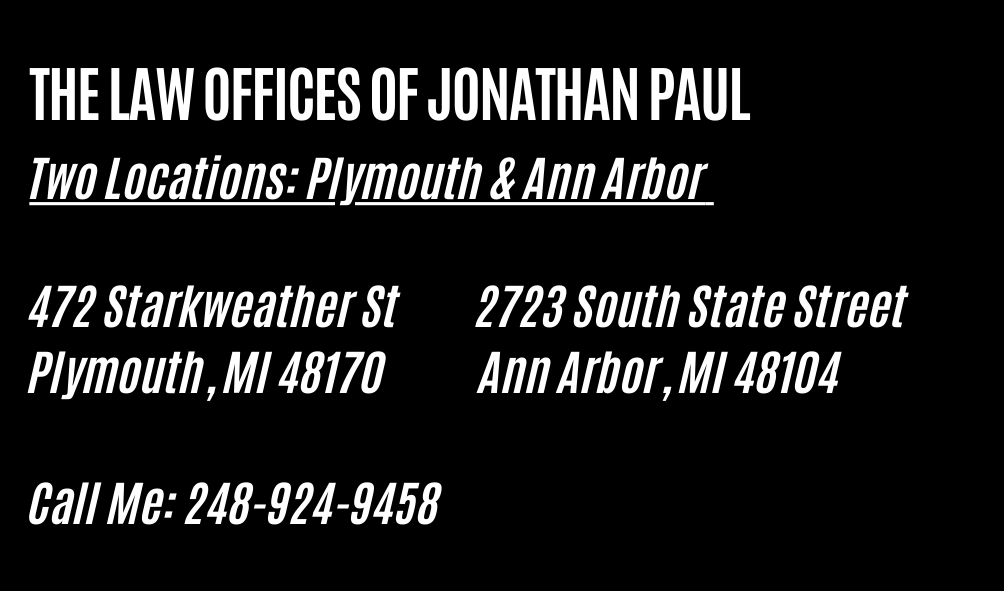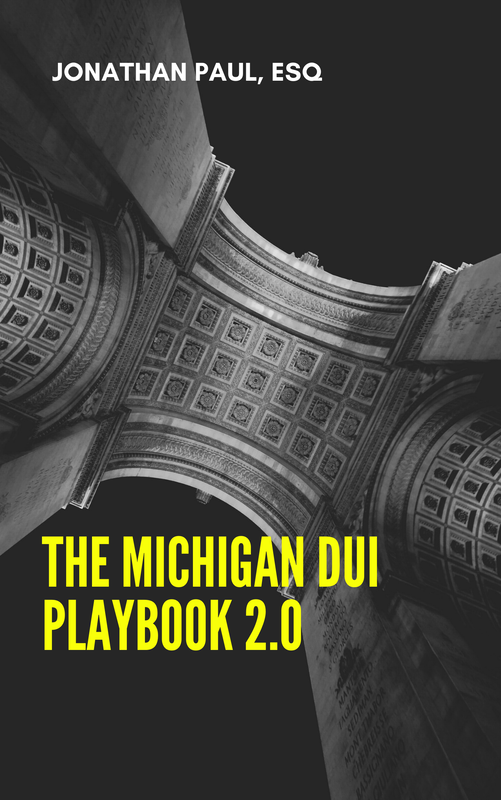|
In Michigan, sobriety courts are voluntary programs for a defendant’s to enter as part of a drunk driving case. Sobriety court is for repeat offenders or offenders with very high BAC levels. Defendants are not forced into sobriety court, but it’s usually an alternative to jail time, and an opportunity to maintain your ability to drive when your license would otherwise be taken away.
When you enter sobriety court, you’re committing yourself for 12 to 24 months of drug and alcohol testing, sometimes daily, and a total commitment to sobriety; violations will send you to jail for the maximum allotted penalty. Essentially, you’re avoiding jail upfront, so if you mess up, you get the maximum. If you enter a sobriety court which is approved by the State of Michigan, you could be eligible for a restricted driver’s license, which you would otherwise not receive without sobriety court. For example, if you are convicted of a second DUI within 7 years, your license will be gone for a year; enter sobriety court, and you might be back on the road in 45-60 days. Sobriety courts are a great option for a client who is seeking the available resources of the criminal justice system, and are ready to embrace close supervision. The goal of the sobriety court is to reduce repeat offenses, get people sober, and head in the right direction. Not all courts in Michigan have a sobriety court, and if they do, most require you to live within the jurisdiction of the court due to the need to supervise you when you are outside of the courtroom walls. If my client is charged with a second offense DUI, or facing jail time for their case, and that particular court has sobriety case, then we put it on the table as a legitimate option. Because all of my client’s are proactive from day one, it’s an easier transition into the sobriety court mindset. Both the client and the sobriety court must agree to begin a working relationship. A client must be deemed a “good candidate”. I have my clients screened and assessed early in the case by a substance abuse counselor, attend AA, participating in community service, alcohol and drug testing and engaged in substance abuse education. If my client selects sobriety court as their best path, we’ve already demonstrated a genuine desire to make changes, and head down the right path going forward. The interview and screening process goes a lot smoother when we’ve already checked off a number of boxes for the sobriety court team. Many times, my clients receive shorter stints in sobriety court, because they’ve been deemed to have made progress, which leads to obtaining a driver’s license in a shorter period of time. When jail and loss of license is on the table, sobriety court is a great option when the strengths outweigh the weaknesses of a client’s case. I’ve had clients save themselves months and years in jail, because together we put together a plan to earn a spot in sobriety court. The same clients who were going to lose their job, have to drop out of school, sell their homes and potentially lose their family were able to avoid that because they earned their license back by entering sobriety court. When a client of mine opts for sobriety court, I am extremely proud of them, because they know it won’t be easy, but it’s the best thing for them in both the short and long-term. Comments are closed.
|
Click to Email Me Categories
All
|
Ann Arbor Office LocationPlymouth Office Location |
Representing DUI Clients in MichiganRepresenting clients charged with a DUI in Ann Arbor, Canton, Brighton, Howell, Saline, Adrian, Taylor, Plymouth, Northville, Westland, Ypsilanti, Pittsfield Towsnhip, Warren, Sterling Heights, Farmington, Pontiac, Romulus, Lansing, Novi, South Lyon, Southfield, Birmingham, Bloomfield Hills, Royal Oak, Troy, Rochester, Jackson, East Lansing, Garden City, Livonia, Dearborn, Detroit, St Clair Shores, Hazel Park, Ferndale, Madison Heights, Waterford, Milford, Shelby Township Clarkston, Oak Park, Berkley, Fraser, Sterling Heights, Clinton Township and others throughout Washtenaw, Wayne, Monroe, Jackson, Genesee, Macomb, Ingham, Lenawee, Livingston and Oakland County.
|








